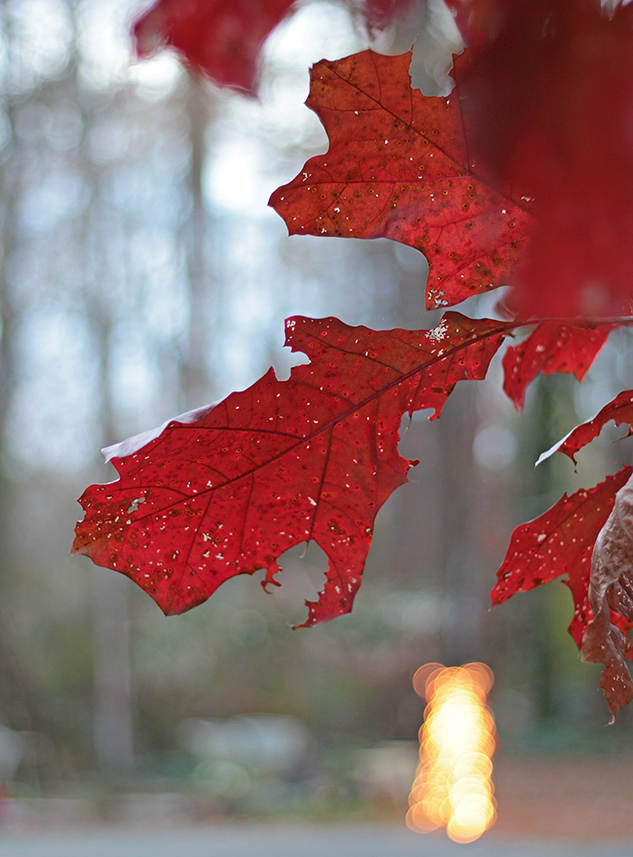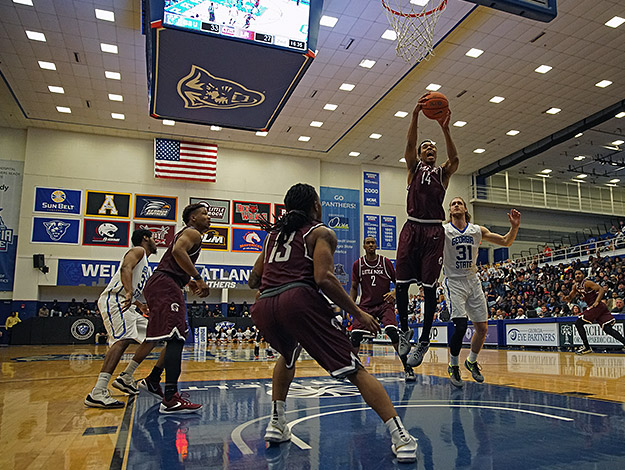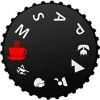Caffeine Priority: Can a Sony A7R II and a Metabones adapter really handle sports shooting?
posted Saturday, March 19, 2016 at 6:00 AM EST

Wake up with IR... Here's today's dose of Caffeine Priority!
When mirrorless cameras burst onto the scene, many photographers praised their lightweight, compact design. It's still a defining characteristic of these types of cameras, and for most folks, it's one of the major advantages over the often larger and heavier DSLRs. What hasn't typically been an advantage for mirrorless cameras is autofocus performance.
That is, until recently…
With the arrival of on-sensor phase detect autofocus, many newer mirrorless cameras have shown dramatic improvements in AF performance, particularly regarding continuous AF. Not only are these cameras smaller than their DSLR counterparts, but many also focus just as quickly, or nearly so. At least in single-shot AF, a number of mirrorless cameras are right up there with DSLRs for AF speed. It's C-AF performance that's a bit trickier.
One of the major contenders for top-notch AF performance is the Sony A7R II. With its powerful processor and updated imaging sensor with a whopping 399 phase-detect AF points, the camera's focusing chops are very, very good when using modern Sony lenses. But what if you don't want to use Sony lenses? One of the big advantages to Sony's E-mount system is the ease of compatibility via adapters to a bunch of other brands and lens mounts.

Sony doesn't advocate one brand of adapters over the other, but I had been hearing promising things about the latest versions of Metabones' E-mount adapter and that, with the A7R II, you can use DSLR lenses, such as Canon glass, with rather respectable AF speeds. Well… I just had to try this out for myself.
Thanks to our pals at LensRentals, I armed myself with the A7R II, a Canon 24-70mm f/2.8L II lens, and the Mark IV version of the Metabones EF-to-Sony adapter, and headed out to a rather tough testing ground: college basketball.
So, how did this rig perform? Surprisingly well, actually, and certainly far from frustrating. I found the camera not only acquired focus very quickly, but also adjusted for subject distance changes quickly as well -- especially for short distance chances. On longer focus shifts from near to distance subjects, autofocusing did feel slower, but nothing too bad. Also, sometimes, as with the sequence shown below, the camera did a good job most of the way through a burst of frames on a moving subject, but focus could sometimes lag behind and not adjust quickly enough (see the last three images of the burst, for example, here, here, and here).

And while the A7R II is certainly not up there with speedy cameras like the Canon 7D Mark II or Nikon D4S in terms of burst rate, it can do in a pinch to capture some action shots or some sports. A DSLR, or a least a camera with a faster burst rate, would still be my first choice for shooting something like basketball. All said and done, though, the Sony A7R II with a Canon DSLR lenses was a rather solid, well-performing combination.
Color me surprised.
To check out more images using this combo, head to our Sony A7R II Gallery Page and search for images with "meta" in the filename.
How about you? Have you used a Sony A7R II or other A7-series camera with an adapter? How has your experience been? Sound off in the comments down below!
{Craving more Caffeine Priority? ...Please Help Yourself!}
Caffeine Priority is a new series of short photo-tidbits to ease you into your day, and give us a chance to share a bit more of what life’s like here at IR. We're more like a group of friends testing and talking about cameras and lenses than the buttoned-down, big-corporation world that some of our photo-friends at other companies work in; hopefully these little snippets will share some of that. So... grab another coffee and join in the conversation with us down below!






